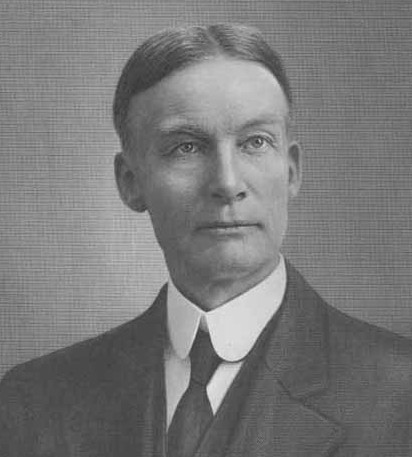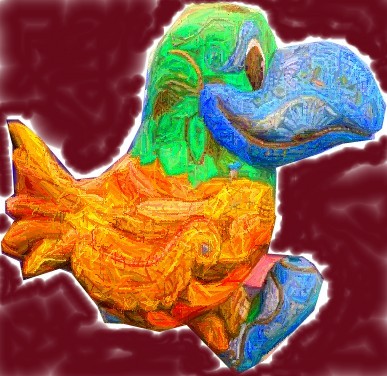I’ve received a couple of questions from student that I’ll answer here:
Question: I was wondering what reading materials are going to be on the exam? Up to what day?
The exam covers material up until the 20th. There will be a question or two based on the most recent reading.
Question: I wanted to know if we have to know the names of the people in the readings other than Sidewalk. I also wanted to know will the test be more on the readings or the lectures.
Yes, you should know the names of the key people surrounding the Jonestown tragedy, but I won’t ask any questions about specific people in Heat Wave. The exam will cover the reading and lecture on about a 50-50 basis, with the more difficult questions coming from the reading.
Why Details Are Important
I think dates, places, and names are important for understanding the conceptual and analytical elements of the course material. At the end of the course, I’d ideally like you to retain general sociological concepts and conceptual frameworks that speak to the first two learning goals of the course (being able to see the connection between social forces and our everyday lives and gaining 21st century information literacy). In other words, I’d rather you walk away with “the concept of social solidarity is important for understanding inequalities in contemporary America” in your head than “a lot of poor people died in the Chicago heat wave because they had no friends or family.” But, the only way to make a case for the first, more abstract, concept is to reference real-life evidence like the statistics & evidence Klinenberg uses. I think you’re more likely to hold onto the theoretical and conceptual ideas if you have examples you can reference. In this way, I think of names, dates, and places as “mental coat hangers” on which we hang more elaborate ideas.
Also, I think it’s important to know details instead of just concepts because it allows you to argue more effectively in civil society. Here’s an example of what I mean by that: let’s say you’re at a local bar and someone next to you starts yapping about how religion is the root of all suicide terrorism in the world and if we just ban Islam we’ll all be safe. To counter this, you could respond with: “That’s not true, there’s this one terrorist group in Sri Lanka that uses suicide terror tactics, and they’re secular and they have secular goals. In fact, the forms of terror that seem the most irrational (like suicide attacks) often involve more of a rational personal and political calculation than you’re comment seemed to suggest. There’s this professor at the University of Chicago that wrote a book about this. You’re totally wrong.” That’s persuasive, but not as compelling as this: “That’s not true the Tamil Tigers from Sri Lanka use suicide terror tactics and they’re a secular Marxist organization. Robert Pape, University of Chicago political scientist, analyzed over 400 suicide terror attacks and found that suicide attacks often involve more of a rational personal and political calculation than you’re comment seemed to suggest. You’re totally wrong.” The second line is much more persuasive (although both responses risk a physical confrontation with this hypothetical person).
Details are important because they’re the building blocks of general, abstract, and conceptual arguments. Therefore, you can expect some straightforward fact-based questions. I also ask this style of question because it measures whether or not, and how closely, the test-taker read the reading. That said, I won’t ask an absurdly detailed question. I might ask “about how many people died in Jonestown? 400? 700? 900? 1,400?” but I won’t ask “exactly how many people died in Jonestown?”
In general, it’s good to read the material with an eye for detail, but some details are just too nit-picky to be included on the exam. The trick is being able to distinguish the two. For instance, I might ask “Who is Tim Stoen?” because he was a semi-major figure in Peoples Temple, is discussed in both Jonestown readings, and I talked about him (albeit, very briefly) class. I wouldn’t, however, ask “Who’s Jack Beam?” even though his name is probably mentioned in at least one of the readings. There will be some fact & detail oriented questions to see if you’re reading the material, but I’ll also ask plenty of questions that have more of a theoretical angle to them (“Which of the following scenarios illustrates Durkheim’s idea of ‘organic solidarity?’”).
Tuesday, February 19, 2008
Subscribe to:
Post Comments (Atom)



2 comments:
When did the Tamil Tigers. E.T.A. or I.R.A. declare perpetual war against the entire world? Moe made his declaration about 622, it is recorded in Bukhari's hadith collection which you can find quoted and linked to source in many of my blog posts.
Banning Islam is necessary, but not sufficient. Lasting peace will not be obtained until Allah's slaves are emancipated or sent home to him. Moe said that Jihad would be practiced continuously until the last day. He also cursed any Muslims who would abandon Jihad as a way of life and take up peaceful agricultural production. You might know about that if you read Abu Dawud's hadith collection.
Another detail: 9:29 declares war on Jews and Christians, to be fought until we are subjugated and pay extortion. 8:39 declares war on pagans until only Allah is worshiped altogether and everywhere.
Of course, those ayat do not mean what they say. Ibn Kathir, who wasted his entire adult life studying Islam's canon of scripture & tradition, says they do. Refer to by blog post titled ROPMA for links to the proof.
One more detail: "The Caliph makes war upon Jews and Christians"... giving 9:29 as the legal basis. That is Sharia, from Reliance of the Traveler, Book O.9. That ruling is confirmed by Al-Shafi'i & Al-Ghazali, who ruled that the Caliph must mount at least one expedition against the Kuffar in every year. To understand why they made that ruling, you need to read Riyad us-Saliheen, Book 11,Ch. 234.
Ben,
Thanks for your comment and for visiting my blog. I think your analysis and critique of fundamentalism is an important task, and I agree with you that there are profound ideological differences among terrorist organizations. But too often in American public discourse, suicide terror is portrayed solely as a product of fanatical ideology. The PKK is an important group to consider because, simply, it shows that suicide terror is not a unique specialty of Islamic fundamentalists. Pape’s data backs this up. As you note on your blog (http://no2jihad.blogspot.com), “Islam has no place for violence.” (I’m not sure in what context you’re writing “Banning Islam is necessary. . .” because it seems like your organization wants theological and political reform, not banning. Most of your post made sense to me, but that stuck out as odd). You clearly know more than I do about the theological issues at stake in this discussion, but I only want to suggest that there are sociological explanations for suicide terror – it can’t simply be explained by “they’re crazy; they hate us.” Again, thanks for stopping by and sharing your thoughts. It’s much appreciated.
-- Brian
Post a Comment